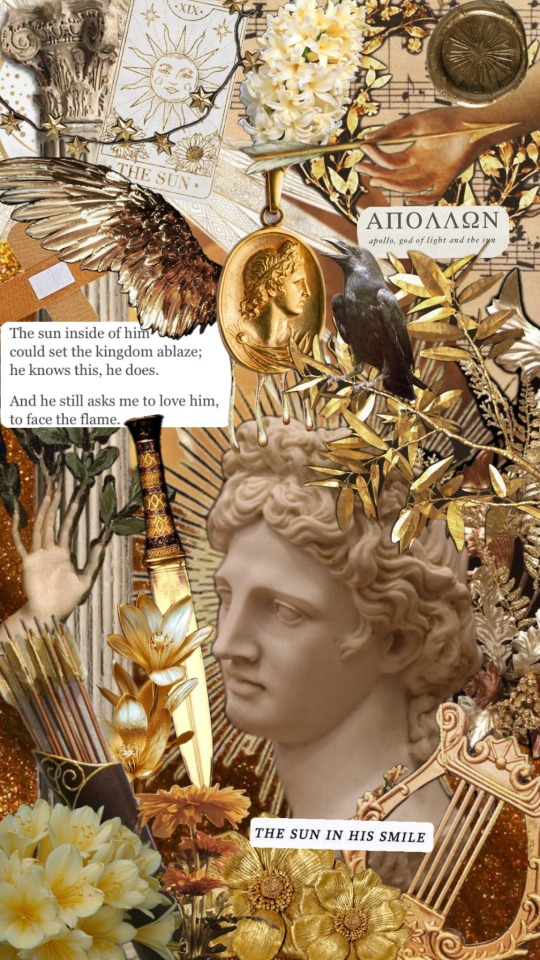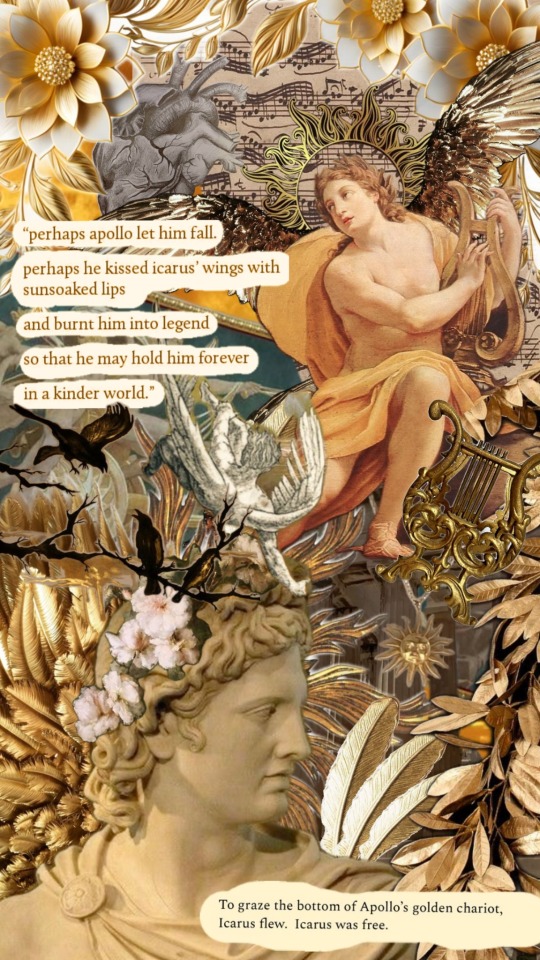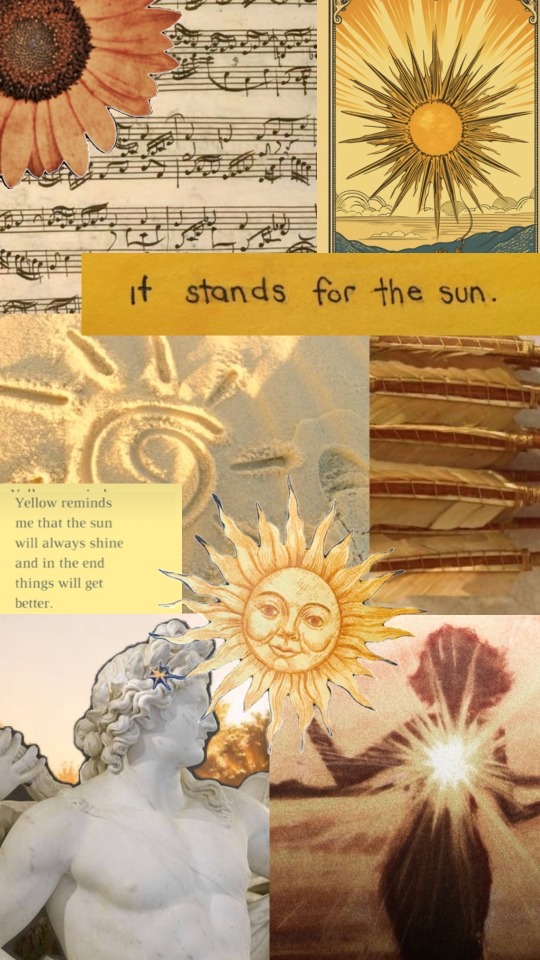HelPol focused blog ☀️ Apollon devotee ☀️mostly reblogs
Last active 2 hours ago
Don't wanna be here? Send us removal request.
Text
✨Artemis Festivals✨

✨Apollo Festivals✨

188 notes
·
View notes
Text



Fragments of the spectacular marine mosaics from the baths of a Roman townhouse excavated on Via Panisperna in 1888.
8K notes
·
View notes
Text
Aphrodite loves sex workers and victims of sexual assault and intersex people and people who are insecure about their body/self harm and nonwhite people and queer people and fat people btw. pass it on
3K notes
·
View notes
Text

Sigil to bring the warmth of her hearth wherever you go 🧡
341 notes
·
View notes
Text
the ladies' bathroom is the temple of Aphrodite
I make my pilgrimage through the crowd
I dance my way through the beer garden and enter her sacred space
past midnight, the sermons begin
the sink is the altar at the temple of Aphrodite
the priestesses are gathered around one tiny mirror
their giggles and cackles are ambrosia to my ears, the nectar has long before started flowing
it has to, else no service tonight
"oh my god," the high priestess says, invoking the prayer
"you're too good for him," says another of the women
"girl, I love that dress," says the third.
one of them offers her mascara. communion.
the stalls are the confession booths in the temple of Aphrodite
as the godess herself holds a girl's hair as she confesses her sin
"do not worry, child, it is not a sin to live in hedonism," she says, her voice like honey
"stall’s free," the girl stumbles out
it is a mess, the temple of Aphrodite
but not a repulsion. tear tracks are a mark of love,
not for the man who caused the tears but for the girls who wipe them away
you’ll never see them again, but tonight they voice the will of a godess
I ask the high priestess where she got her shoes
it is part of the ritual of the temple, and I have done my part now
"ooh, girl, on sale!" the priestess is pleased.
the godess herself is appeased. I go in peace.
the ladies' bathroom is the temple of Aphrodite
599 notes
·
View notes
Text
108 notes
·
View notes
Text

Joint offering to Apollo and Helios for the Solstice.
27 notes
·
View notes
Text
Lord Apollon,
Son of Zeus and Leto,
I praise and worship you as the brilliant god
full of love and light,
The god of healing and music,
An oracle and miracle to the people,
I pray to you for protection,
I can only hope to feel your presence and be grateful for your blessings,
☀️✨🌻
221 notes
·
View notes
Text
CALLIOPE.
— MUSE OF EPIC POETRY, OF THE SCIENCES IN GENERAL AND OF ELOQUENCE. THE FIRST OF THE NINE MUSES, BLESSED DAUGHTER OF ZEUS.
38 notes
·
View notes
Text
In this post I will help beginners understand the basics of Hellenism, which is the oikos! Hope this help and I’ll explain all well! Enjoy your reading💛 (Sorry for my English if I’ve mistaken something, its not my frist language)
The sacred Household in Hellenism🏡
“The gods are not far away — they live among us, beginning at the hearth.”
When people first come to Hellenism, many expect temples, elaborate rituals, and festivals with incense drifting into the sky. And yes, those things exist, and they’re beautiful.
But in traditional Hellenic religion, the true center of worship has always been the household — the oikos. This is where devotion begins.
The oikos is more than just your physical living space. In ancient Greece, it referred to the entire household unit: the family, the home, the land, the goods, and the sacred forces that protected and sustained them.
For Hellenists, our home is a temple in miniature. It’s where you interact with the gods every day, where you make offerings, pray, purify, and maintain order. You don’t need an expensive altar, what you need is intention, reverence, and consistency.
Hestia: The heart of the Home🔥
At the center of the sacred household is Hestia, goddess of the hearth flame.
She is the first-born of the Olympians, and the first (and last) to receive offerings in every ritual.
Hestia represents warmth, safety, peace, continuity. In ancient homes, the hearth fire was never allowed to go out, and when a new household was formed, the flame was lit from the family hearth.
(I will do more about the Gods in specific in other posts)
In a modern practice, you can honor Hestia simply:
Light a candle or lamp in her name.
Offer a drop of oil, water, or wine.
Speak a short prayer:
“Hestia, keeper of the hearth, may your flame burn bright in my home.”
It doesn’t need to be elaborate!
But ancient Greeks honored her a bit differently!
As I said earlier, the hearth (estia) was a literal fire in the center of the home. It was always kept burning as a sacred flame: extinguishing it was considered bad luck or impious unless ritually necessary.
Every meal and domestic ritual began with a libation or offering to Hestia! In fact, no matter which god was being honored, Hestia received the first and last libation in any sacrificial ritual.
She didn’t have many temples, her domain was every home and public places! At city level, a sacred fire to Hestia burned in the prytaneion (town hall or public hearth), symbolizing civic unity.
And then as another ritual, when a couple got married or a new household was formed, a flame from the bride’s family hearth was carried to the new home to light the new hearth, symbolizing continuity and divine blessing!
The Household Gods are more than one!🏛️
The sacred household includes more than Hestia. Such as: Zeus Ktesios, Hermes Propylaios / Hermes Agoraios, ancestors and Household Spirits (like Agathos Daimon).
Of course, there are more Gods that protects Household but these are the most commonly honored ones!
Zeus Ktesios: Protector of the household, provider of goods and food. Many Hellenists keep a ktesios jar, a simple container filled with water, oil, and other symbolic items like bay leaves or coins. It’s kept in a clean corner of the pantry or home.
Hermes Propylaios / Hermes Agoraios: Hermes protects the boundaries of the home and the spaces beyond. He is honored at the threshold, by the door, as guardian of comings and goings. A small stone or figure by your door can be his marker. He’s the god who makes movement and communication possible.
Ancestors and Household Spirits: The dead are never far from the living in Hellenism. Ancestors (both literal and spiritual) are remembered with respect and offerings.
But what can we do as a devotion in our homes?
There are many ways! But I’ll offer a little simple routine:
Washing your hands (khernips) to purify
Lighting a candle for Hestia
Pouring a libation (water, milk, wine)
Speaking a short prayer
Leaving a small offering: bread, olive oil, fruit, or incense.
Remember that none of this is a RULE and necessary, but it builds Kharis and in more simple words it tells the Gods “this is your home too and may you protect it”, we make space for the Gods and its a simple yet efficent devotional act!
It reminds us that the divine is not far away! In Hellenism, this is where devotion starts!
I hope you enjoyed. I tried to explain this well enough and at the same time as short as I could!
271 notes
·
View notes
Text

Lord Dionysus,
Please enjoy this digital art I've made for you
And know that I'm so sorry for my thoughts, and their repetitive, odd nature
Blessed be, God with ivy crown
93 notes
·
View notes
Text
Some collage offerings to Apollo :D


feel free to use them if u want <3
234 notes
·
View notes
Text

I tried to make a little e-offering for Apollon :)
I’m still getting used to that Pinterest collage feature…but I think I did good
Have a lovely day!!!
116 notes
·
View notes
Text

I’ve been loving making these!! Little digital offering for Ares ❤️
144 notes
·
View notes
Text









𝒌𝒊𝒓𝒌𝒆; 𝒈𝒐𝒅𝒅𝒆𝒔𝒔 𝒐𝒇 𝒔𝒐𝒓𝒄𝒆𝒓𝒚, 𝒎𝒂𝒈𝒊𝒄 𝒂𝒏𝒅 𝒊𝒍𝒍𝒖𝒔𝒊𝒐𝒏🌿🕯
[please reblog or like if you saved]
62 notes
·
View notes

